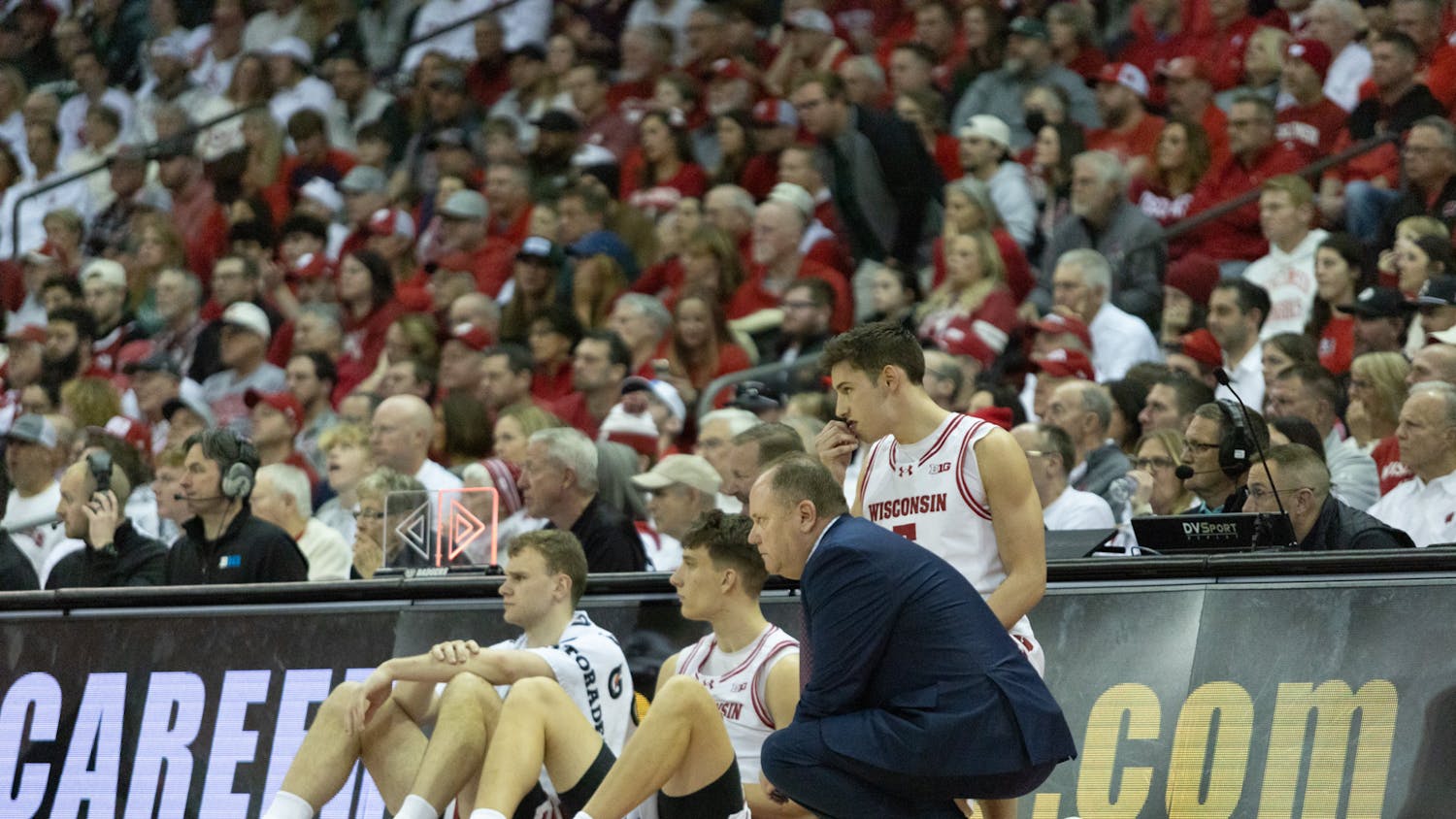University of Wisconsin-Madison Chancellor Jennifer Mnookin highlighted the arrival of a record 8,500 freshman, even as she warned of looming challenges tied to federal and state funding and free speech scrutiny in a student media roundtable Tuesday.
The incoming class was selected from more than 74,000 applicants — a 12% increase over last year — with students representing all 72 Wisconsin counties, all 50 states, Washington D.C. and Puerto Rico. The class includes the highest share of first-generation students in at least 20 years, with more than 25% of them being Pell Grant-eligible.
Vice Chancellor for Student Affairs Lori Reesor also said the Student Affairs office plans to announce a new office at UW-Madison for first generation and limited income students. Currently, they are searching for a director to head the office and plan to open it in January 2026.
“As a first generation student, there are a lot of things you don't always know, or don't realize you don't know,” she said. “To help students find community, find additional support and guidance and direction for how to navigate this really big place [is their goal].”
Graduate and professional enrollment, however, dropped 3% overall, with new graduate enrollment down 9% in total. Mnookin said the decline was “partly” deliberate, as some programs scaled back class sizes due to federal funding uncertainty. International enrollment fell by about 500 students, though Mnookin noted the decrease was less severe than anticipated.
Funding
Mnookin stressed that the federal research landscape remains volatile. Higher education associations have forecast a new Office of Management & Budget order cutting reimbursement rates for indirect research costs to 15% could slash UW-Madison’s budget by $100 million annually.
“I do think that if we face significant cuts to research, the bulk of the impact of that will be in the research space. I think we would probably try to look to be as efficient as possible across the university,” she said. “We will do all we can to preserve our research mission, and we will do all we can to preserve the strength of the student experience.”
To prepare for future cuts, campus units implemented 5% to 7% core funding cuts this fiscal year.
“Doing modest cuts now, even if not welcome, is the financially responsible thing to do,” Mnookin said.
Reesor said leaders leaned on data to minimize student impact. “We can’t keep doing more with less,” she said. “But we’re making hard decisions based on where students need support.”
Mnookin emphasized student aid remains off-limits for cuts. “Not a single dollar of financial aid disappeared — no scholarships were eliminated,” she said.
Mnookin and Reesor also highlighted contributions that alumni have made in the face of both state and federal cuts.
“We've been gratified to see that there's alums who've stepped up and said, ‘Wow, in the face of this, how can I help?’,” Mnookin said. “There have been people who've made a generous scholarship gift, other people are talking about contributing to research.”
Free Speech on Campus
Beginning in the spring, the Department of Education launched a string of federal investigations in response to Title VI complaints made stating universities, including UW-Madison, failed to adequately address incidents of harassment based on shared ancestry.
“We're a public institution,” Mnookin said. “It is our responsibility to follow the law, whether I like the law or I don't like the law, isn’t really helpful. It is my job and my responsibility to follow the law.”
The chancellor added that due federal activity around free speech and civil rights enforcement, UW-Madison faces “potential challenges” in shaping campus policies.
Back in April, Mnookin signed an open letter alongside 200 other leaders in higher education calling the federal government’s intrusion “unprecedented” and “coercive.”
The letter followed the Trump Administration’s decision to freeze federal funds to Harvard University after the university refused to comply with their demands.
Mnookin has advocated for civil dialogue and open discussion across ideological lines in the past.
“Creating opportunities for respectful dialogue across our differences of background and beliefs, and building a shared appreciation for our pluralistic society, are our imperative,” Mnookin wrote in a July message to the UW-Madison community.
At the roundtable, Mnookin said her Deliberation Dinners, wherein students meet to discuss controversial political issues in a setting that exposes them to multiple competing ideas, will expand this fall, alongside additional initiatives in that area that will be announced later in the semester.
Despite warnings of “bumps and bruises” ahead, Mnookin says she remains optimistic about UW-Madison’s ability to weather the storm.
“I really I want to be both candid about the federal risks,” she said, “but I also want to be equally clear that I believe that this institution will get through this moment and that our student experience will remain strong, that we will remain a strong research institution, that our faculty will continue to be able to do important work as teachers and as researchers and as scholars.”
Annika Bereny is the campus news editor for The Daily Cardinal. She previously served as the special pages editor. As a staff writer, she's written in-depth on campus news specializing in protest policy, free speech and historical analysis. She has also written for state and city news. She is a History and Journalism major. Follow her on Twitter at @annikabereny.
Alaina Walsh is the city news editor for The Daily Cardinal. She formally served as the associates news editor and has covered breaking news on city crimes, a variety of state and campus issues, the 2024 presidential election and the UW-Madison budget. You can follow her on twitter at @alaina_wal4347






